
Catalog#/Size:AC52379/100 µg
Source:Escherichia coli.
SDS-PAGE: 18.5 kDa, under reducing conditions,37 kDa, non-reducing conditions
Molecular Weight: Approximately 18.5kDa, a single non-glycosylated polypeptide chain containing 159 amino acids.
-
100 µg
¥4380.00
现货 -
1 mg
¥27800.00
现货
Catalog#/Size:AC52379/100 µg
Source:Escherichia coli.
Molecular Weight: Approximately 18.5kDa, a single non-glycosylated polypeptide chain containing 159 amino acids.
Description : Accession # NP_757350.2, Glu33-Ser190, with an N terminal Met.
SDS-PAGE:18.5 kDa, under reducing conditions,37 kDa, non-reducing conditions
Purity:> 95 %, as determined by SDS-PAGE, under reducing non-reducing conditions, visualized by coomassie staining.
Endotoxin:Less than 0.01 EU/µg of rHuM-CSF as determined by kinetic Limulus Amoebocyte Lysate (LAL) assay.
Biological Activity:Recombinant human M-CSF bioactivity is measured by RAW264.7 cells, the EC50 for this effect is 59.90 to 182.0 ng/mL.
Physical Appearance: Sterile Filtered White lyophilized (freeze-dried) powder.
Formulation: Lyophilized from a 0.2 μm filtered solution in PBS with Trehalose.
Reconstitution: We recommend that this vial be briefly centrifuged prior to opening to bring the contents to the bottom. Reconstitute to a concentration of 0.1-1.0 mg/mL in sterile distilled H2O. Stock solutions should be apportioned into working aliquots and stored at-20 ℃ to -70 ℃. Further dilutions should be made in appropriate buffered solutions. Do not reconstitute in cell culture media directly.
Shipping: The product is shipped at 2 °C to 8 ° C. Upon receipt, store it immediately at the temperature recommended below.
Stability & Storage: Use a manual defrost freezer and avoid repeated freeze-thaw cycles.
A minimum of 12 months from date of shipping when stored at -20℃ to -70℃ as supplied.
4 weeks at 2 ℃ to 8 ℃ under sterile conditions after reconstitution.
4 months at -20 ℃ to -70 ℃ under sterile conditions after reconstitution
Usage: Acnovia rHu M-CSF product can be used for a variety of ex vivo cell culture applications such as research or further manufacturing.
Macrophage colony stimulating factor (M-CSF) is hematopoietic growth factor produced by a wide variety of cells. M-CSF was found to be a glycoprotein with a molecular weight of 85 kDa which stimulated macrophage colony formation of mouse bone marrow cells in a semisolid agar culture system in 1978 [1]. M-CSF stimulates differentiation of progenitor cells to mature monocytes, and prolongs the survival of monocytes. It enhances expression of differentiation antigens and stimulates chemotactic, phagocytic and the killing activities of monocytes. M-CSF also stimulates production of several cytokines such as granulocyte-macrophage CSF, granulocyte CSF and interleukin (IL)-6 by priming monocytes, and directly stimulates production and secretion of IL-8 and reactive nitrogen intermediates. M-CSF acts through the CSF receptor 1. Although human M-CSF shows activity on mouse cells, mouse CSF shows no activity on human cells [2].
1.Motoyoshi K. Biological activities and clinical application of M-CSF. Int J Hematol. 1998 Feb;67(2):109-22.
2.Bourette RP, Rohrschneider LR. Early events in M-CSF receptor signaling. Growth Factors. 2000;17(3):155-66.
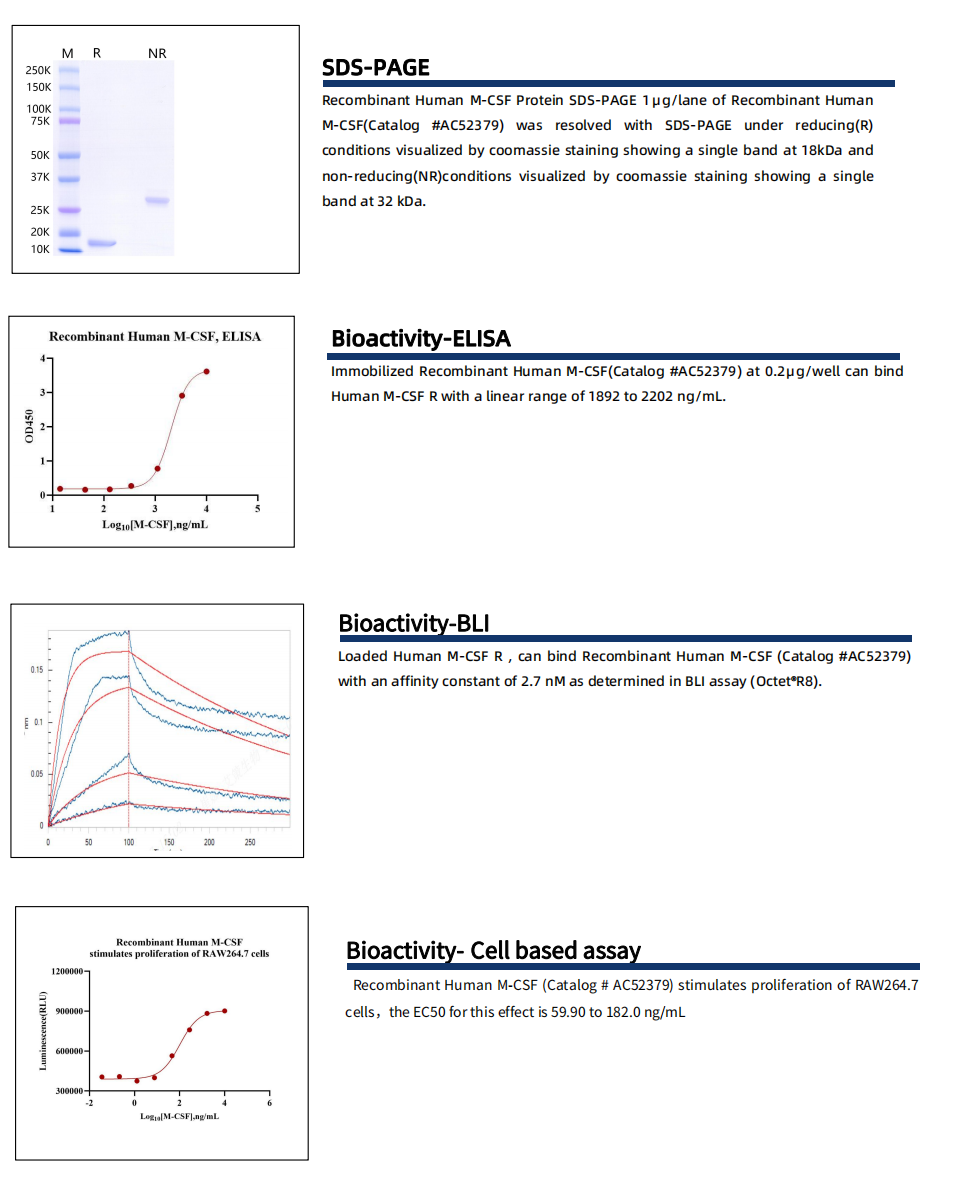




 CN
CN








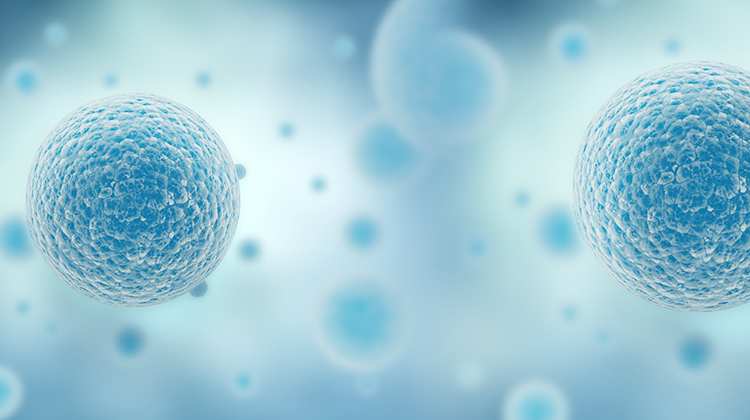
 细胞治疗
细胞治疗
 基因治疗
基因治疗
 mRNA治疗
mRNA治疗
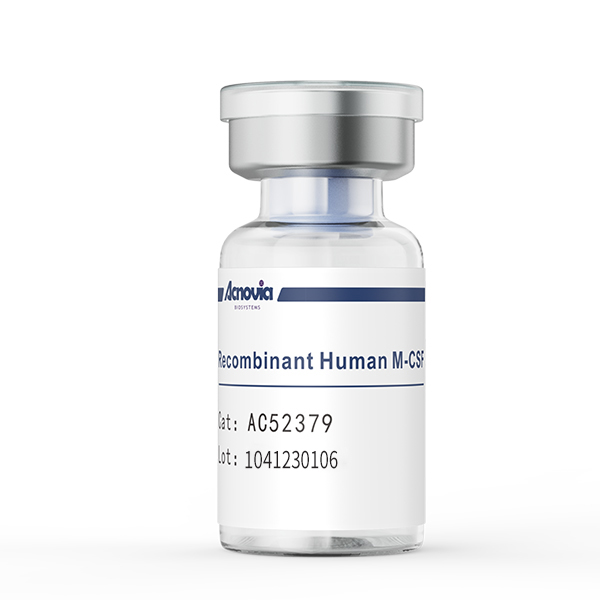
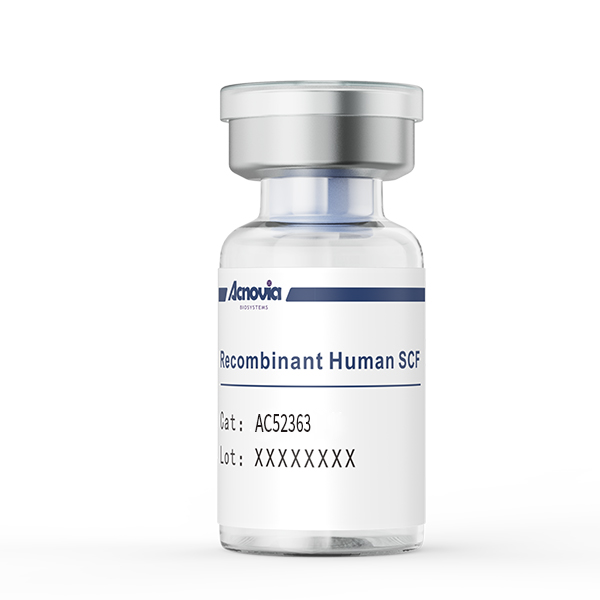

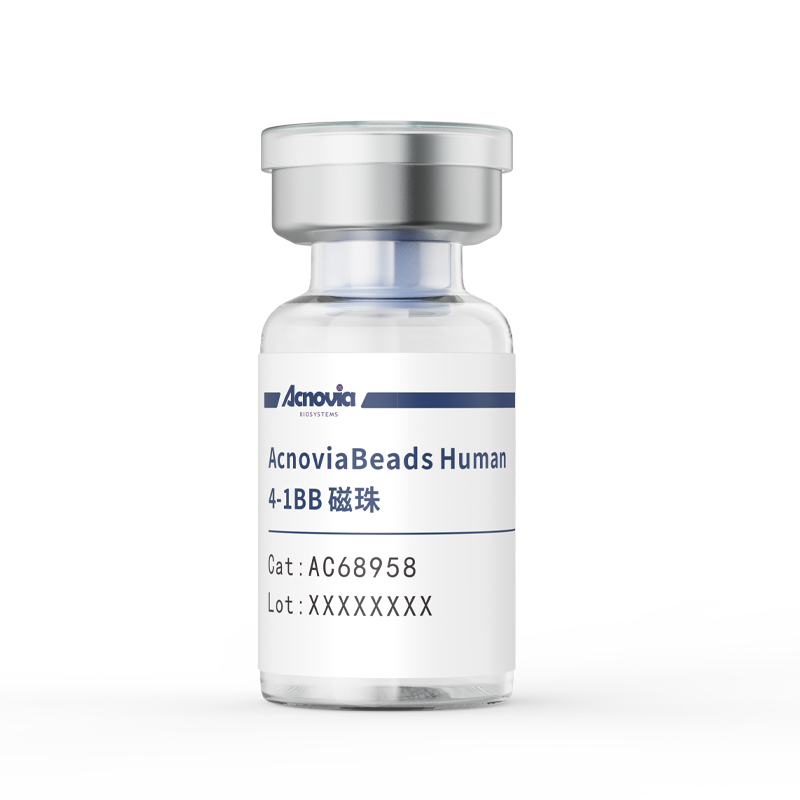
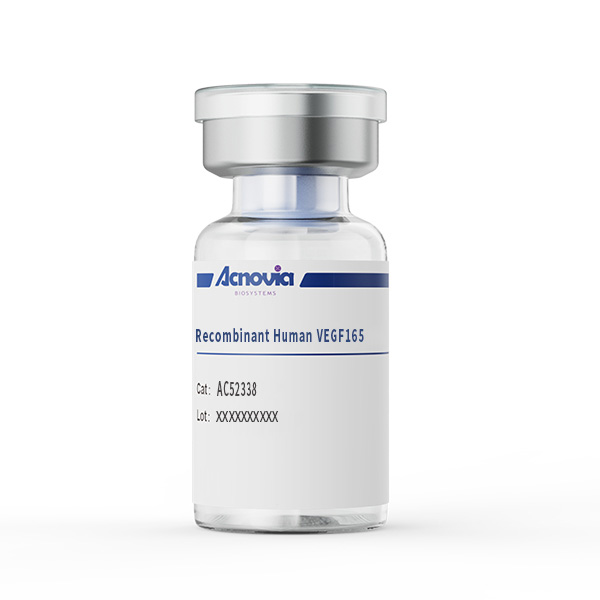

 产品说明书
产品说明书 试用装
试用装
 0571-86963020
0571-86963020




